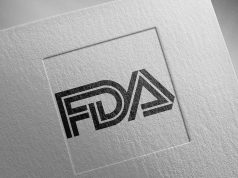Primary care-feasible behavioral interventions have moderate net benefit for school-aged children
WEDNESDAY, April 29, 2020 (HealthDay News) — The U.S. Preventive Services Task Force (USPSTF) concludes that primary care-feasible behavioral interventions have a moderate net benefit for preventing tobacco use in children. These findings form the basis of a final recommendation statement, published online April 28 in the Journal of the American Medical Association.
Shelley Selph, M.D., M.P.H., from Oregon Health & Science University in Portland, and colleagues conducted a systematic review on primary care-relevant interventions for tobacco use prevention and cessation in children and adolescents. Data were included from 24 randomized clinical trials, with 44,521 participants. The researchers found that compared with control interventions, behavioral interventions correlated with a reduced likelihood of cigarette smoking initiation at seven to 36 months of follow-up. When trials were restricted to smokers, there was no significant difference between behavioral interventions and controls.
Based on these findings, the USPSTF concludes with moderate certainty that primary care-feasible behavioral interventions, such as education or brief counseling, have a moderate net benefit for preventing tobacco use in school-aged children and adolescents (B recommendation). For school-aged children who already smoke, the USPSTF concludes that the evidence is inadequate for determining the balance of benefits and harms of primary care interventions for tobacco cessation (I statement).
“Tobacco use in children and teens is now on the rise, driven largely by vaping,” USPSTF member Chien-Wen Tseng, M.D., M.P.H., said in a statement. “The Task Force examined how clinicians can help youth quit tobacco products, including e-cigarettes, but unfortunately there is not enough evidence in this area, so we are calling for more research.”
Evidence Report (subscription or payment may be required)
Recommendations (subscription or payment may be required)
Editorial (subscription or payment may be required)
Copyright © 2020 HealthDay. All rights reserved.








